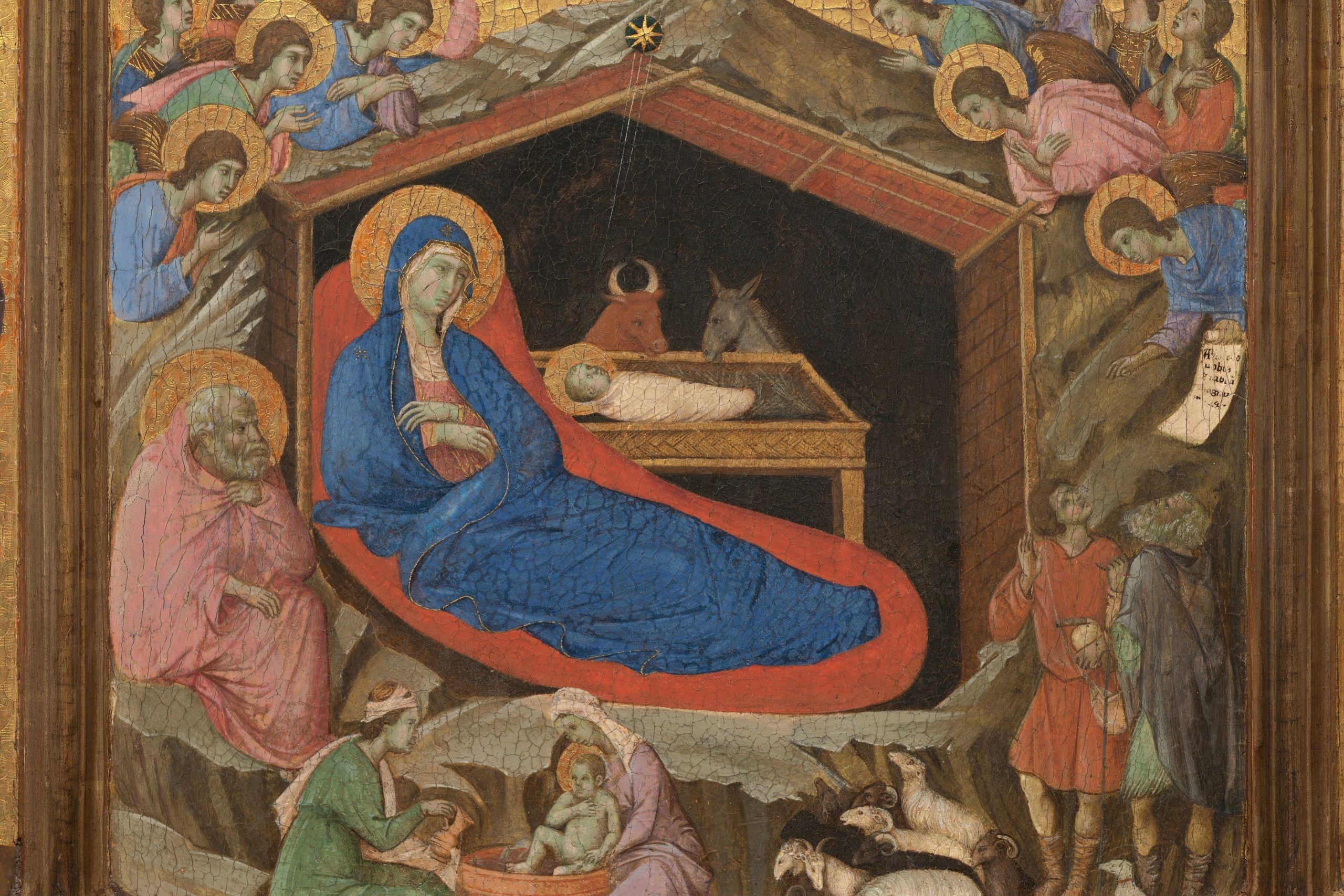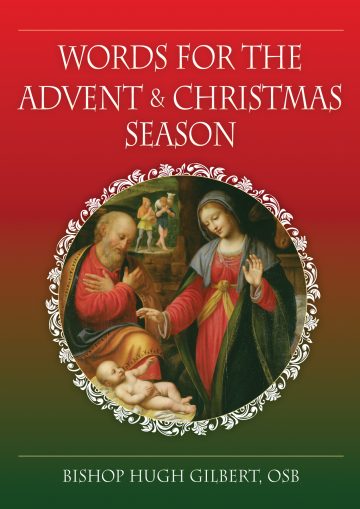I know an American gentleman who calls his house, “Love-in-the-ruins”. I’ve never asked him why. But certainly it’s not the kind of name you forget.
If you look at Renaissance paintings of the Nativity, often the stable is shown as dilapidated, ruined. It’s a symbol, of course, of the world, of us. And there in the middle of the ruins is love; there is the Child.
And the readings we’ve just heard begin in the ruins. “Break into shouts of joy, you ruins of Jerusalem” (Is 52:9), said the first reading. Those words come from the sixth century B.C. Behind them lies the most shattering experience ancient Israel endured, and over which the Jews still grieve and fast today. This was the destruction of Jerusalem by the Babylonians in 586 B.C., when its walls, houses, palaces, and most of all, its Temple were all left in ruins. “The City where the most High dwells”, the pride and joy of every Israelite’s heart, the goal of his pilgrimages – in ruins.
It was all very real. But it’s a symbol too, of the world, of us – like the tumble-down stable. We’re in the stable; we’re in the ruins. We can think of lives ruined by addiction to alcohol and drugs and other things. We can think that if a society can seriously contemplate same-sex marriage, then its idea of man and woman and marriage is surely in ruins. We can think of our broken families. We can think of our economic system. We can even wonder about the Church. And then about our own lives, and the dying that awaits us.
Beneath it all is the real ruin, the real gaping hole: our broken relationship with God. A fifth century Christian monk (John of Apamea) put it like this:
“By growing away from the true God, our Father and Lord, humankind has become estranged from him. We have lost our sense of real life, squandered the treasures hidden within us, deprived ourselves of the knowledge of God, and have fallen into the deep darkness of ignorance … incapable of [even] knowing ourselves.”
Joy and consolation as he raises us up again
Yet, what Christmas says is that Love is in the ruins.
What the prophet Isaiah says is, “Break into shouts of joy together, you ruins of Jerusalem, for the Lord is consoling his people, redeeming Jerusalem” (Is 52:9).
What the Letter to the Hebrews is saying is that the word, through which God first made the house of the world we pull down around our ears, has now been spoken to it. Christmas is – to quote Karl Rahner – “God speaking his last, his deepest, his most beautiful word to the world: ‘I love you, man; I love you, world.’”
Christmas is the apostle John solemnly proclaiming: “The Word was made flesh and dwelt among us. And we saw his glory, the glory that is his as the only Son of the Father, full of grace and truth” (Jn 1:14).
Love is in the ruins.
Yes, “the Word was made flesh” – our poor, ruined, smelly, mortal flesh – “and dwelt among us.” “And to all who did accept him he has given power to become children of God” (Jn 1:12). He has restored that broken relationship, he has made us friends of God.
“He has humbled himself, come down to us, put on our clothes of flesh, made himself visible. He comes and goes among us. He looks for us and finds us, while we are still in chains, miserable, corruptible, flat on the ground, sunk in deep darkness…He has stretched out his hand to guide us, taken hold of us and stood us on our feet again, restored our courage, given us back joy. He has saved and redeemed us, gathered us together and healed us. He has brought us peace, unity, purity, justification…He has drawn us to himself, united us with himself, reconciled us, made us share his grandeur, elevated us to his world of truth and his kingdom of peace…He is our hope, our expectation, our resurrection. He is beauty, clothing, glory, splendour, day, light, life, wealth and treasure” (John of Apamea).
No wonder that today Pope St Leo the Great could utter his memorable words: “O Christian, be aware of your dignity – it is God’s own nature that you share. Don’t then by an unworthy way of life fall back into your former baseness. Think of the Head, think of the Body of which you are a member. Recall that you have been rescued from the power of darkness and have been transferred to the light and the kingdom of God.”
So, my American is on to something: Love is in the ruins. God is with us. The Word has become flesh and lives among us. In every Eucharist, he is present, present in his flesh and blood, building up the ruins, turning our stables into temples of the Holy Spirit.
May we feel that this Christmas! May our friendship with God become closer, move to a new level! May we allow God’s word and the grace of the sacraments to shape us and rebuild us and convince us of his love!
“A society begins to be decadent, it has been said, when everyone says to themselves, ‘What’s going to happen next?’, instead of asking, ‘What can I do?’” (Denis de Rougemont).
If Love is in the ruins, if God is with us, then there is something we can do. We can work with God – by purity of life, by everything we do at home, at work, anywhere, by our whole living and dying, by our prayer. We can rebuild the ruins in the power of his love. Amen.

